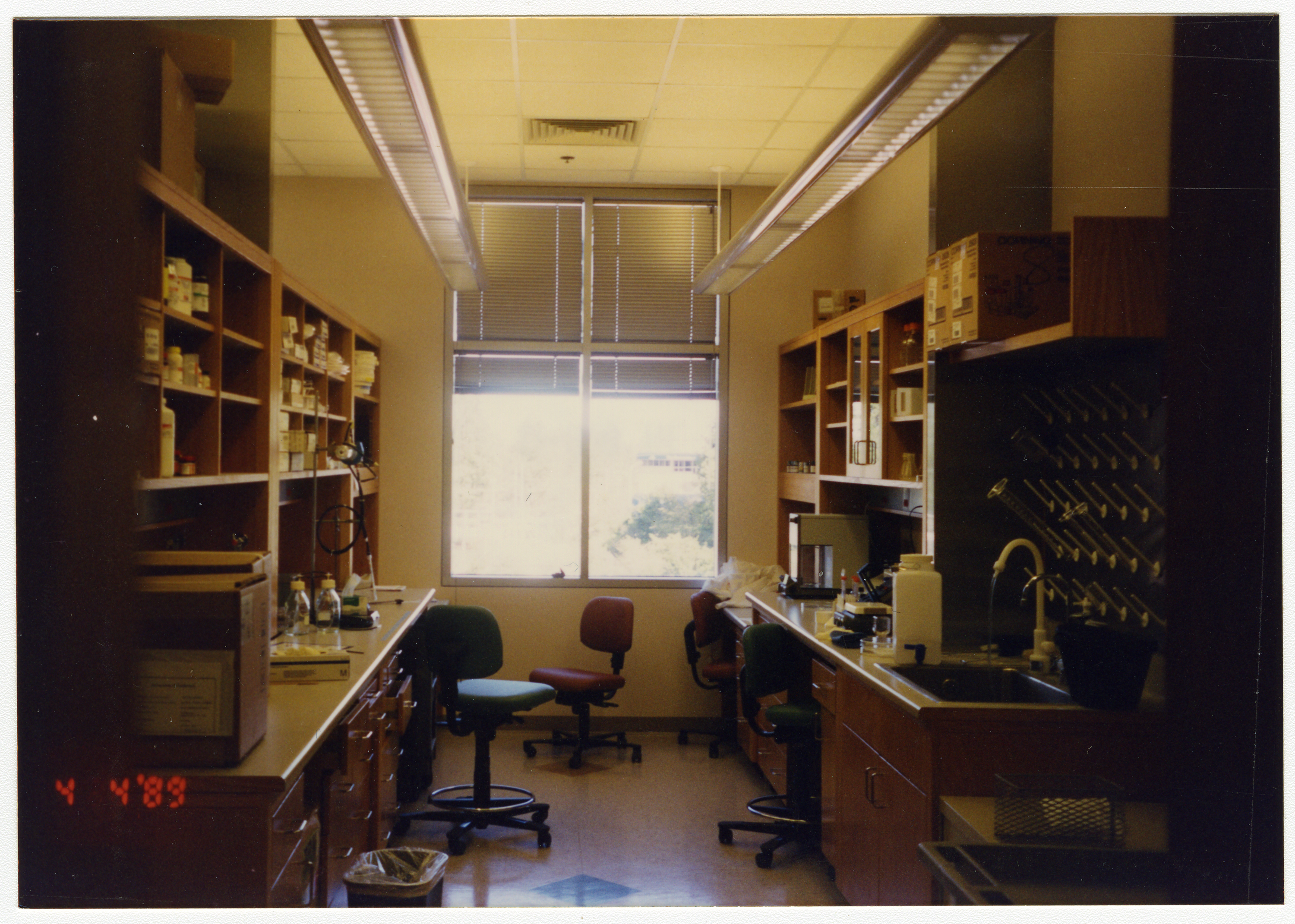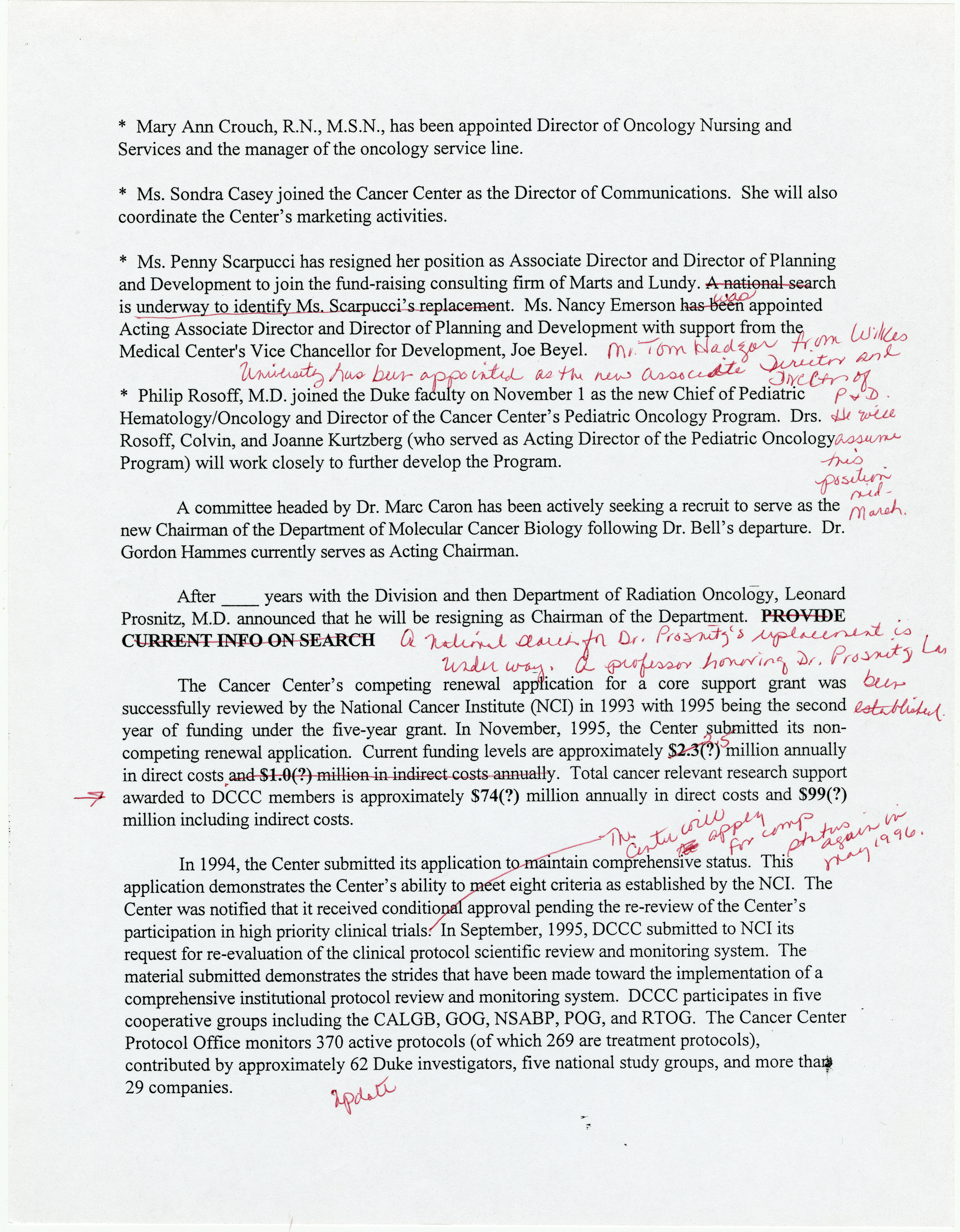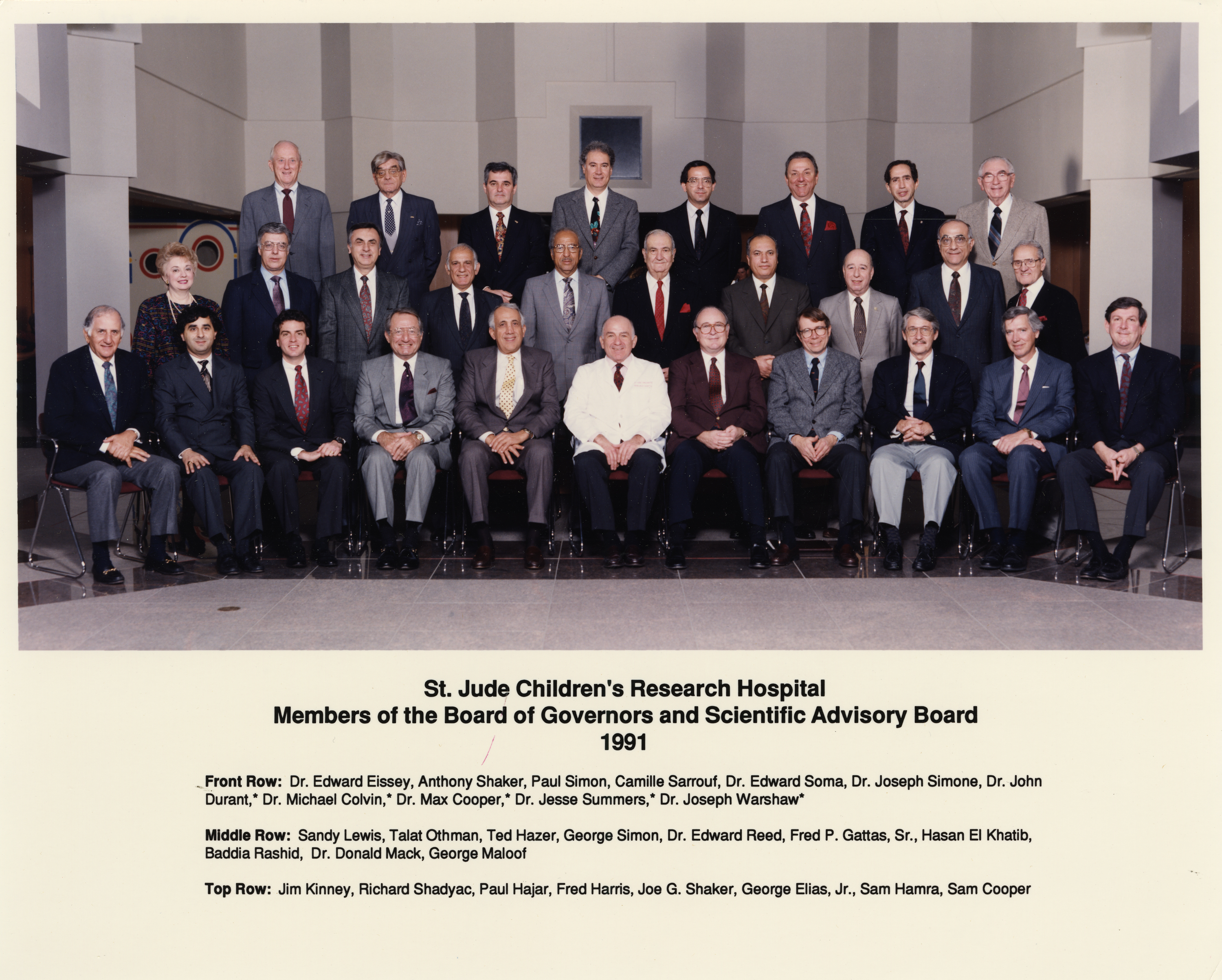This is the second blog post in a three-part series exploring the life and career of Dr. O. Michael Colvin (1936-2013), renowned oncologist and educator, who served as Director of the Duke Comprehensive Cancer Center from 1995 to 2002. This blog post discusses the impact of the National Cancer Act of 1971 on the Duke Comprehensive Cancer Center and on Colvin’s career.
The first blog post introduces Colvin and his work.
The third blog post highlights Colvin’s dedication to his patients at the Duke Comprehensive Cancer Center.
While Colvin served as a physician and assistant professor at Johns Hopkins University, cancer research across the nation became a national priority. Scientists in the United States had long contributed to international knowledge of the disease, notable examples being the mastectomy inventor William Halsted and Charles Huggins, the developer of hormone therapy. By the 1970s, cancer had become the second leading cause of death in the country. Former President Richard Nixon declared a war on cancer, and, in 1971, Congress passed the National Cancer Act with bipartisan support.


 The National Cancer Act of 1971 invested the modern equivalent of $10 billion into the National Cancer Institute (NCI), in hopes of gradually lowering annual death rates from the disease. With its new powers awarded by the Act, the NCI, founded in 1937, created an advisory board, established annual direct communication with the President and Congress, and expanded the network of cancer research centers nationally. With increased federal support, the NCI bolstered certain avenues of cancer research, such as health disparities, clinical trials, and research technology. The National Cancer Act of 1971 provided cancer researchers a greater presence in NCI budgeting decisions, thus heralding in a larger movement to democratize decisions about scientific funding.
The National Cancer Act of 1971 invested the modern equivalent of $10 billion into the National Cancer Institute (NCI), in hopes of gradually lowering annual death rates from the disease. With its new powers awarded by the Act, the NCI, founded in 1937, created an advisory board, established annual direct communication with the President and Congress, and expanded the network of cancer research centers nationally. With increased federal support, the NCI bolstered certain avenues of cancer research, such as health disparities, clinical trials, and research technology. The National Cancer Act of 1971 provided cancer researchers a greater presence in NCI budgeting decisions, thus heralding in a larger movement to democratize decisions about scientific funding.
In 1973, the NCI recognized the newly-founded Duke Cancer Center as “comprehensive,” recognizing its strong clinical research program. Roughly twenty-five years later, Colvin would continue the Duke Comprehensive Cancer Center (DCCC)’s tradition of excellence. While serving as director, Colvin restructured the administration and appointed senior leaders to manage the core goals of the Center: basic research, clinical research, cancer prevention, detection, and control. The DCCC continues to be a hub for cancer research, treatment, and training, supported by grants from the NCI.
 While at Johns Hopkins and Duke, Colvin supported the wider network of cancer research. He served on the advisory boards of the International Oncology Network Hematology division, St. Jude Children’s Hospital, Memorial Children’s Hospital, the Memorial Sloan-Kettering Cancer Center, and the Washington University Siteman Cancer Center. He assisted in producing the field’s national publications, serving on the American Association for Cancer Research publications committee; the Journal of the National Cancer Institute editorial advisory board; and the Cancer Chemotherapy & Pharmacology board of editors.
While at Johns Hopkins and Duke, Colvin supported the wider network of cancer research. He served on the advisory boards of the International Oncology Network Hematology division, St. Jude Children’s Hospital, Memorial Children’s Hospital, the Memorial Sloan-Kettering Cancer Center, and the Washington University Siteman Cancer Center. He assisted in producing the field’s national publications, serving on the American Association for Cancer Research publications committee; the Journal of the National Cancer Institute editorial advisory board; and the Cancer Chemotherapy & Pharmacology board of editors.
The O. Michael Colvin Papers contains correspondence, research notes, writings, photographs, awards, and digital files representing Colvin’s personal life and professional work. To view materials from the O. Michael Colvin Papers, contact the Medical Center Archives staff. Stay tuned for future blog posts about Colvin.
This blog post was contributed by Medical Center Archives Intern Emma Eubank.
References:
“50 years ago this week President Nixon signed the National Cancer Act,” NPR, https://www.npr.org/2021/12/22/1066642237/50-years-ago-this-week-presid…;
“The 50 years' war: The history and outcomes of the National Cancer Act of 1971,” Cancer, https://acsjournals.onlinelibrary.wiley.com/doi/10.1002/cncr.34040
“Milestones in Cancer Research and Discovery,” National Cancer Institute, https://www.cancer.gov/research/progress/250-years-milestones
“National Cancer Act of 1971,” National Cancer Institute, https://www.cancer.gov/about-nci/overview/history/national-cancer-act-1…;
“What the National Cancer Act Made Possible,” National Cancer Institute, https://www.cancer.gov/news-events/nca50/stories
